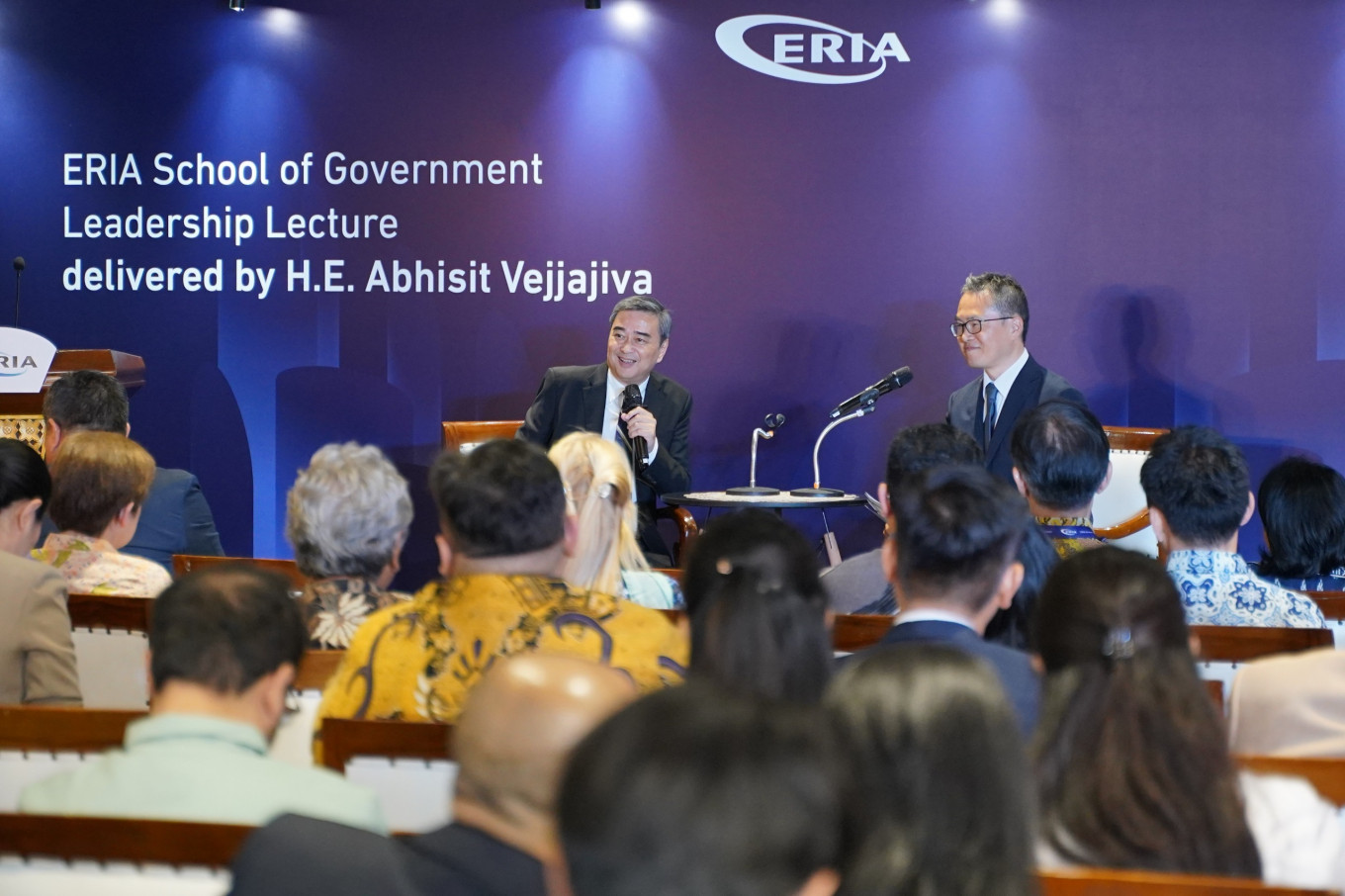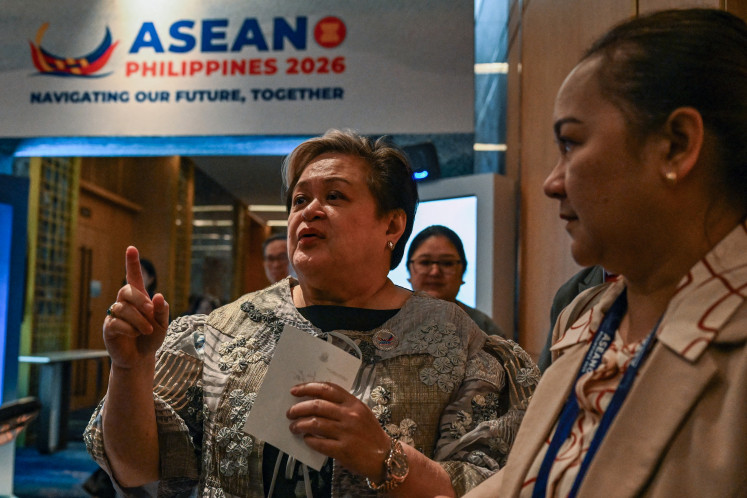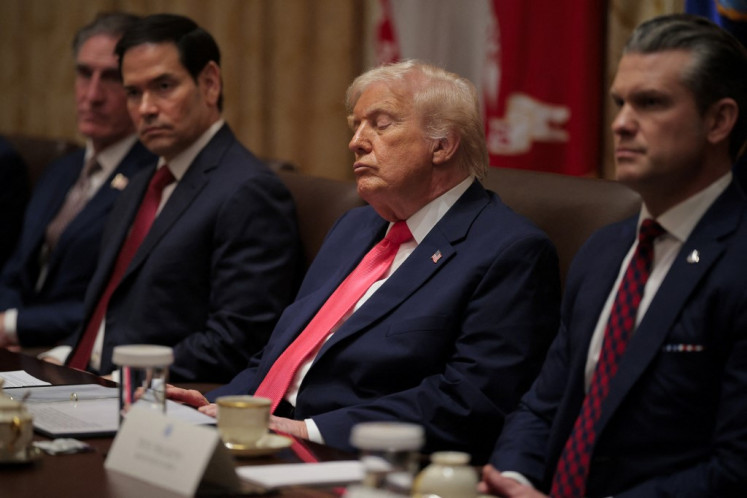Popular Reads
Top Results
Can't find what you're looking for?
View all search resultsPopular Reads
Top Results
Can't find what you're looking for?
View all search resultsAbhisit shares experiences as Thai premier at leadership lecture
Abhisit shared insights into his pivotal political decisions and reflected on the evolving political dynamics in Southeast Asia.
Change text size
Gift Premium Articles
to Anyone
 Former Thai prime minister Abhisit Vejjajiva (center left) answers questions from the audience while dean and managing director of the School of Government (SOG) at the Economic Research Institute for ASEAN and East Asia (ERIA), Nobuhiro Aizawa (center right) looks on in Jakarta on Oct. 22, 2025. Abhisit shared insights into his pivotal political decisions and reflected on the evolving political dynamics in Southeast Asia. (Courtesy of ERIA/-)
Former Thai prime minister Abhisit Vejjajiva (center left) answers questions from the audience while dean and managing director of the School of Government (SOG) at the Economic Research Institute for ASEAN and East Asia (ERIA), Nobuhiro Aizawa (center right) looks on in Jakarta on Oct. 22, 2025. Abhisit shared insights into his pivotal political decisions and reflected on the evolving political dynamics in Southeast Asia. (Courtesy of ERIA/-)
P
olitical, economic, and social challenges are not confined to any single country but are global in nature, thus requiring strong regional cooperation and shared commitment to democratic values, former Thai prime minister Abhisit Vejjajiva said recently.
Abhisit was speaking at the third Leadership Lecture Series, organized by the School of Government (SOG) of the Economic Research Institute for ASEAN and East Asia (ERIA) on Oct. 22.
The lecture reflected on Thailand’s political journey and underscored the critical importance of leadership in navigating complex political and economic challenges while maintaining national stability and advancing democratic principles, the school said in a press release.
Abhisit shared insights into his pivotal political decisions and reflected on the evolving political dynamics in Southeast Asia.
Drawing from his experience in navigating political and social divides, Abhisit underscored that leadership must be grounded in an ideology of principle, one that upholds integrity, accountability and the courage to make difficult decisions, even when such choices come at a political cost.
He reflected that acting in accordance with one’s principles provides the moral clarity essential for peace and reconciliation.
A seasoned politician, Abhisit was elected prime minister from Dec. 17, 2008, to Aug. 5, 2011.
Abhisit faced various challenges during his premiership, such as major protests in April 2009 and April-May 2010, when a military crackdown on protestors caused the deaths of at least 91 people.
Around the same time, the Thai army clashed with Cambodian troops numerous times while an insurgency in South Thailand escalated.
He has been the leader of the Democratic Party since Oct. 18. Previously, he held the party leadership from March 6, 2005, to March 24, 2019.
Initially working as a lecturer, Abhisit led the opposition bench in the Thai parliament twice. The first stint was from April 23, 2005, to Dec. 17, 2008, and then from Sept. 16, 2011, to Dec. 8, 2013.
Meanwhile, the school dean and managing director Nobuhiro Aizawa said in his welcoming address that the lecture embodied ERIA’s commitment to foster meaningful dialogue among regional leaders and drawing lessons from their experiences in governance and diplomacy.
Aizawa emphasized the importance of preserving leadership experiences to nurture the next generation of policymakers and regional thinkers, as quoted by the statement.
He remarked that leadership is not only about decision-making but also about reflection, empathy and the ability to inspire others toward collective progress.
He further highlighted the need to understand leadership in times of deepening political divides and to revisit the role of political parties and political will in strengthening regional co-operation and pursuing long-term regional interests.
The lecture was attended by diplomats, policymakers, academics and students, fostering rich discussions on democratic governance, leadership values and regional cooperation in Southeast Asia.









